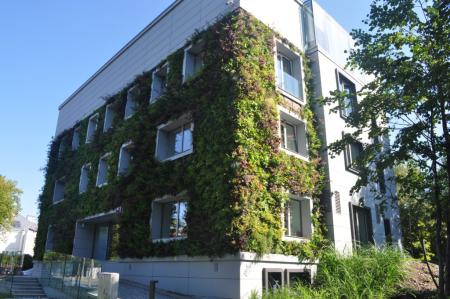
Resource description:
The idea of nature having multiple benefits for urban management and planning is gaining prominence alongside the rise of climate change awareness. It is expressed through concepts such as nature-based solutions (NbS), ecosystem-based adaptation (EbA), and blue-green infrastructure (BGI). Despite their popularity in the international arena, relatively little is known about how these concepts are used and interpreted at the local level, which has implications for policy formulation and actions. This paper examined both direct and indirect references to these concepts, as well as the reasons for their potential omission. By analysing policy documents and interviews with practitioners and activists from four Polish cities (Gdansk, Krakow, Warsaw, Wroclaw), it discussed the uneven and ambivalent uptake of concepts in the urban green and blue space (UGBS) governance. While the reluctance to use new terminology was often explained by accessibility and efficiency concerns, it also revealed some conceptual confusion. The contribution of this study is twofold: 1) providing a more nuanced understanding of the conceptual ambiguity surrounding the NbS, EbA and BGI concepts and the gap between international policy rhetorics and local interpretation; 2) expanding the geography of research on urban climate adaptation and urban green spaces which tends to overlook the countries of Central and Eastern Europe.
Requirements:
- How these "green" concepts are used explicitly and implicitly
- If the concepts are not used, what are the reasons for their omission?
Advantages:
- Direct references to the concepts played a noticeable role in introducing the agenda on UGBS in climate adaptation to the policy documents.
- Even though the impact of climate awareness on UGBS management and planning was often unclear, its rise seemed to support the importance of urban greening.
Constraints:
- Can be described as selective (the aspects embraced are usually the ones that are in line with broader policy priorities, e.g. requirements of the new water law) and somewhat superficial (when mentioned, the concepts often lack specificity and elaboration
DOI reference:
https://doi.org/10.1016/j.ufug.2020.126798
Licence:
- Public/open source
Accessibility:
- Screen reader compliant
Development stage:
- Full, working product
Quality assurance:
- Scientific peer review
- Accreditation
- Professional references
- 1-s20-s1618866720306154-main-2.pdf (741.31 KB)